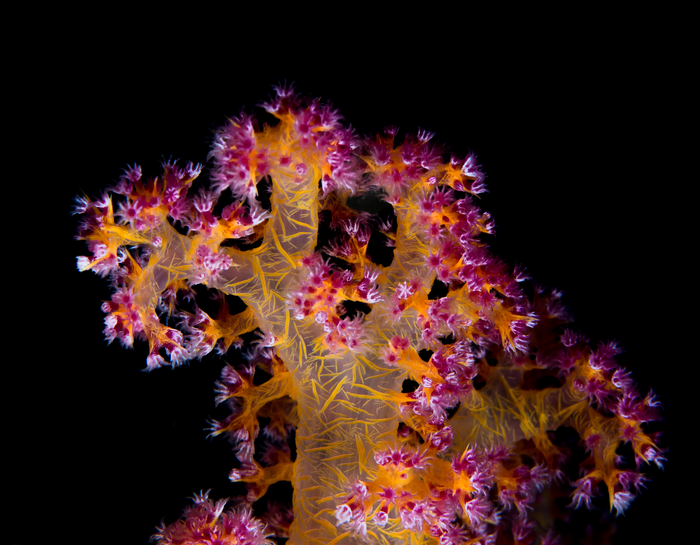New research suggests that treating corals with a probiotic cocktail consisting of beneficial bacteria can help in survival after a bleaching event. This technique can be employed prior to a predicted heatwave event, to help corals to recover from high sea temperatures.
 KAUST researchers are exploring the use of probiotic bacteria to boost the survival of corals after bleaching events. Image Credit: KAUST; Morgan Bennett Smith.
KAUST researchers are exploring the use of probiotic bacteria to boost the survival of corals after bleaching events. Image Credit: KAUST; Morgan Bennett Smith.
Climate change causes an increase in the ocean temperature, which hinders the relationship between corals and their symbiotic photosynthetic algae, resulting in coral bleaching and, in some instances, leading to the death of corals.
Researchers from King Abdullah University of Science and Technology have suggested that manipulating the coral microbiome can end up improving their stress tolerance by utilizing beneficial microorganisms for corals, or BMC.
The researchers tested this by using six beneficial bacterial strains, separated from the coral Mussismilia hispida to inject experimental clusters of M. hispida. Simultaneously, the corals were introduced to heat stress treatment, with the temperature rising to 30 °C before it drops to 26 °C, over a period of 10 days.
The researchers tracked the health of corals and quantified the microbial diversity and metabolic parameters in treatment with and without probiotics or heat stress. At first, the researcher did not find any differences. The corals with and without probiotics reacted similarly at peak temperature and both bleached.
At that point of the experiment, I thought, well, OK, we’re seeing similar responses between the treatments. But then after we dropped the temperature, we observed a plot twist from the group that we treated with probiotic BMC. That was a really nice surprise.
Erika Santoro, Study Lead Author and Postdoc, King Abdullah University of Science and Technology
Probiotic treatment enhanced the response and recovery of the corals post heat stress occurrence, which elevated the survival from 60% to 100%. The researchers explain this as BMC assisting the holobiont to overcome the impacts of “post-heat stress disorder” and eventually reconstruct the physiological and metabolic profiles.
The researchers also analyzed a few of the protective molecular mechanisms. During recovery, the corals treated with BMC exhibited less expression of genes involved in apoptosis and cellular reconstruction and improved expression of thermal stress protection genes.
The BMC treatment also changed the profiles of the microbiome by adding some of the beneficial bacteria along with other variations in the population structure. The BMCs offer a valuable tool to mitigate the consequences of climate change. However, Santoro describes that it is not a silver bullet.
Using a probiotic is an effective tool to help corals deal with the heat stress, but we also have to consider other interventions, protection and conservation, everyone being more aware and, most importantly, decreasing greenhouse gas emissions and trying to change our resource use. Corals will need all of these interventions.
Erika Santoro, Study Lead Author and Postdoc, King Abdullah University of Science and Technology
Journal Reference:
Santoro, E. P., et al. (2021) Coral microbiome manipulation elicits metabolic and genetic restructuring to mitigate heat stress and evade mortality. Science Advances. doi.org/10.1126/sciadv.abg3088.